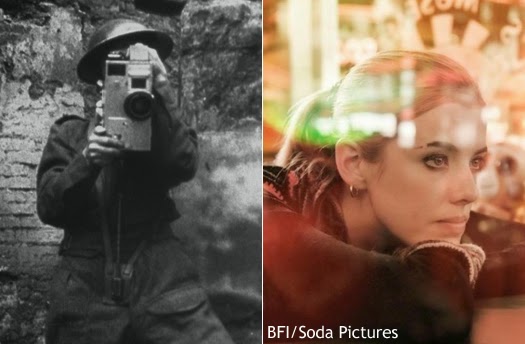The latest entry in the long running film series is a taut, tantalising cocktail of numerous identities, kinetic thrills and visual theatrics
At their best, the Mission: Impossible movies have slickly channelled the tone and tempo of Alfred Hitchcock and James Bond, tales of ordinary people in extraordinary situations to go with the locations, action, gadgets and girls we so often expect in the spy genre. When not drowned in directorial ego (see: the second film), style overtaking substance (the second film again) or the look of over-budgeted television (see: the all-too-Alias third film), the series spreads its wings and soars high and true with a uniquely satisfying edge.
In the fifth entry, Rogue Nation, the intimate intensity of the first movie and tongue-in-cheek excitement of the fourth movie are retained, if not enhanced. But this may be the first time the series has really flexed its visual and theatrical muscles; and it works brilliantly.
It's no coincidence, for me, that the U2 line of Vienna's underground railway plays an important part in our heroes meeting up for the traditionally effective night-at-the-opera set piece. Through transportation, both the undercover nature of spy work and the history of this film series are referenced: remember when Adam Clayton and Larry Mullen's turbulent adaptation of Lalo Schifrin's immortal theme tune re-raised the Mission: Impossible curtain in 1996, a mere year after Bono and the Edge penned the theme tune that saw Pierce Brosnan open the door on a brand new era for another famous spy?
Two decades later, James Bond and Tom Cruise's Ethan Hunt have come full circle, finding themselves in an old and new world where none can sleep: how fitting is it that Turandot's Nessun Dorma - "None Shall Sleep" - is both the operatic and thematic centrepiece of this film? To put it another way, U2 reminds us of what was then, and what is now, while Nessun Dorma is fully reflective of the film's mood. It's also pretty reflective of the state of the Impossible Missions Force in Rogue Nation.
Faced with an unexpected death and a shocking revelation, Ethan Hunt must go on the run and into hiding when he and the IMF are deemed surplus to requirements and dissolved into the CIA after one too many brushes with danger. Once relied upon, they are now viewed as a hindrance. Such is the nature of the film's bureaucrats, who disregard the need for vigilantism, and will later seek to justify using it themselves when they believe they have no other choice.
Except perhaps they do. This universally established message, that of people forever seeking to rationalise their actions for the sake of either maintaining an image of control or achieving their personal goals, runs throughout the course of the movie, and reaches its apex when the quietly yet deceptively unassuming Attlee (Simon McBurney) remarks that there are no allies in statecraft, only common interest. Is his manner, for better or worse, relating to the underestimated, enigmatic prime minister of the same name who was renowned for substance over style? Judging by his character, it's quite possible.
What's definite is that the whole IMF have no choice to be fugitives. Or at least Hunt has to be hunted down. And what happens from there on in delights both body and brain. Pace, after all, is key when your protagonist both is and is played by the perpetual “man on the run”. Ethan Hunt is the prototypical Tom Cruise role: cool, calm and collected with sporadic, well-timed quips or emotional outbursts. It's a polarizing persona, either the perfect fit or an incompetent irritation, depending on Cruise's choice of collaborator.
Fortunately, Cruise has worked with a series of high profile and top notch directors, and Christopher McQuarrie is no exception. McQuarrie's Usual Suspects screenplay set a relatively recent benchmark for talky thrillers about conning and being conned, with an indelible mistaken identity twist. That is essentially what the M:I series is about; usual suspects in unusual situations, with Ethan Hunt and the film's requisite girl or femme fatale in the most unusual situations of them all. Here, we have the none-too-subtly named Ilsa Faust, played by the alluring Rebecca Ferguson: it's not revealing much to say that a key part of her personality is unveiled in Casablanca, and she's symbolically made a deal with the devil.
But in the hands of McQuarrie and producer JJ Abrams, such on-the-nose character naming is crafty rather than clunky. Knowing his actors' strengths, Abrams gives them plenty of time and space to be expressive and effective amongst nifty visuals and tense action. Be he a slacker, policeman, overgrown child or skilled engineer, Simon Pegg's characters are often defined by energetic loyalty, and his Benji Dunn is no different, while Jeremy Renner continues to wittily and affably evolve beyond his Daniel Craig-lite image. Rogue Nation has the ideal amount of heart, soul and drive for its cast, script and even locales, being flippant, yet fierce, silly, yet suspenseful, and improbable, yet irresistible. It's deceptively simple, tantalisingly swift and - thanks to ace DP Robert Elswit - strikingly beautiful. I loved it. Read more...































